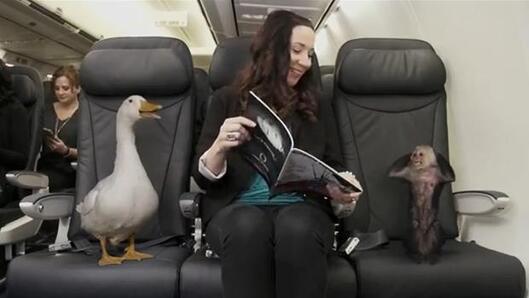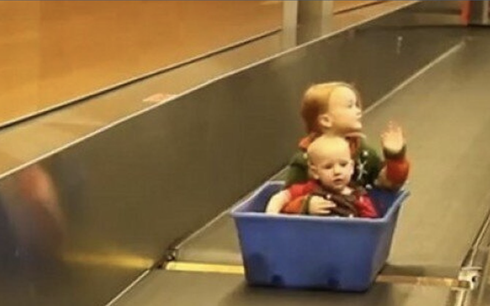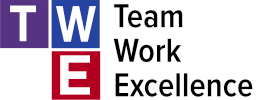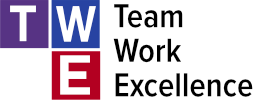Coming in Heavy: Why WestJet's decision to abandon April Fools' jokes is no laughing matter4/28/2023
As an organizational consultant and leadership coach, I can't help but have concern over WestJet's recent decision to forego its traditional April Fool joke in favour of a stern statement of responsibility. On April 1st, I received a mass email to: [email protected]  Furry Family Cabins on WestJet Furry Family Cabins on WestJet von Hoensbroech emphasized that I "deserve friendly, reliable, and affordable service every time you fly with us." Sure, but I don't believe this has to come at the cost of a light-hearted employee and more jovial flying experience. I understand why disgruntled travellers and shareholders want reassurance that they take operational and customer service issues seriously. But a flight infused with humour and lightheartedness can enhance the overall experience, build customer resilience, and even camaraderie with the staff - which can counter air travel's frequent and unforeseen stresses. As a proud Calgarian, it saddens me to see WestJet, a local company that was once known for its "employees/owner" culture, move even farther away from its roots of Western Pride, Hospitality and Irreverence that made it famous. While I understand the need for reliability and affordability, operational efficiency, humour, and lightheartedness are not mutually exclusive. Personal, positive vibes still are a competitive advantage in the airline industry. Empowering employees to have fun created the space to provide unique and enjoyable customer experiences is no small feat, and humour was a hallmark of WestJet's brand both inside and out. WestJet may survive by getting serious - but will it thrive again as a cherished Canadian brand if it equates delivering reliable and affordable service with being cold? And abandoning humour and levity could ultimately harm the employee experience and retention.  What they are giving up: "Furry Family" cabins for pets on their flights, launching a "SmartSeat" that could detect and respond to passengers' emotions and unveiling a "Flyre Festival" package that parodied the failed Fyre Festival. WestJet has always stood out from other airlines by embracing their humanity and not taking themselves too seriously. Take, for example, their April Fool's classics of the new "KargoKids" service in 2012 that promised to keep kids entertained in the cargo hold on long flights so parents could enjoy their flights. The modified baggage area would even include a kiddy feed trough to keep Junior happy. And in 2018, to become more Canadian and cut down on departure confusion, the airline announced it would switch to metric time. Now travellers could perform a simple conversion: "Let's say your flights leave at 5:42 p.m. (or 1742 on the 24-hour clock.) Take the 17 x 60 to get 1020, add-in the 42 to get 1062 and divide by 1.44 to get your new flight time: 737 Milliminutes. It's as simple as switching Fahrenheit to Celsius!" While some may consider these gags unnecessary, they showcase WestJet's culture to employees and travellers. And this levity carried on in the cabin, complimentary on every flight.
The meme of a WestJet flight attendant giving a hilarious preflight demo went viral worldwide. Studies have proven that allowing employees to have fun at work leads to increased engagement, productivity, and employee retention. A 2017 Great Place to Work Institute study found that companies with a positive and engaging workplace culture have higher levels of employee engagement and retention. So, what happens now that WestJet has decided to ditch its April Fool's jokes? It's unlikely that becoming more "serious" will help them overcome operational challenges... and with less emphasis on humour, this move could ultimately result in a less engaging customer experience and a less enjoyable workplace for employees. WestJet will take another step to become an average airline, failing to remain committed to that that differentiated it in a competitive marketplace. WestJet's decision to abandon its April Fool jokes is misguided. The airline is risking its brand, customer experience, and employee experience by moving away from this commitment to levity. Customers who have come to expect and enjoy WestJet's annual April Fool's jokes may be disappointed or perceive the company as losing its playful and customer-centric approach. Employees may lose creative expression and morale if the company eliminates this longstanding tradition. Other airline companies are ready to make this their calling card... so the decision to stop kidding around may carry a very un-funny risk of diluting WestJet's brand and corporate personality and losing one more differentiating factor in an unforgiving airline industry. What data pushed them to assume operational issues somehow conflicted with levity? This same thinking leads to the "Resting Work Face," where walking around looking serious or acting overworked makes employees seem busier or more indispensable. Ultimately this does little for the employee or the company. While providing friendly, reliable, and affordable service is essential, Profitable, reliable service can be achieved more effectively and sustainably when the fun and engaging culture that made WestJet a legendary Canadian brand is intact. I hope that CEO Hoensbroech realizes WestJet can be "serious fun" and chooses to keep the humour that made the company unique. Customer experience and employee engagement is no joke, and if you abandon the competitive advantage of humour, you are completely missing the punchline. Ready to unlock your leadership impact and build unshakable teams? Let's work together! Free 30 Minute DiscoveryComments are closed.
|
Videos, Articles, Tools and More for Leaders in BusinessSET UP FOR SUCCESS?
|
|
© TeamWorkExcellence 2023. All rights reserved.
|


 RSS Feed
RSS Feed
